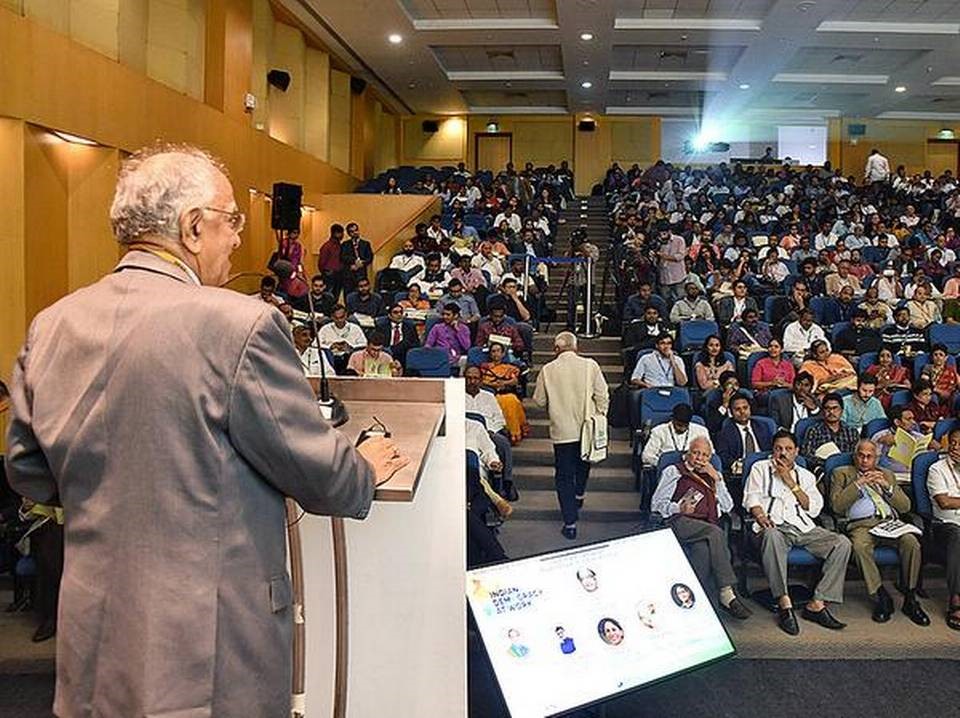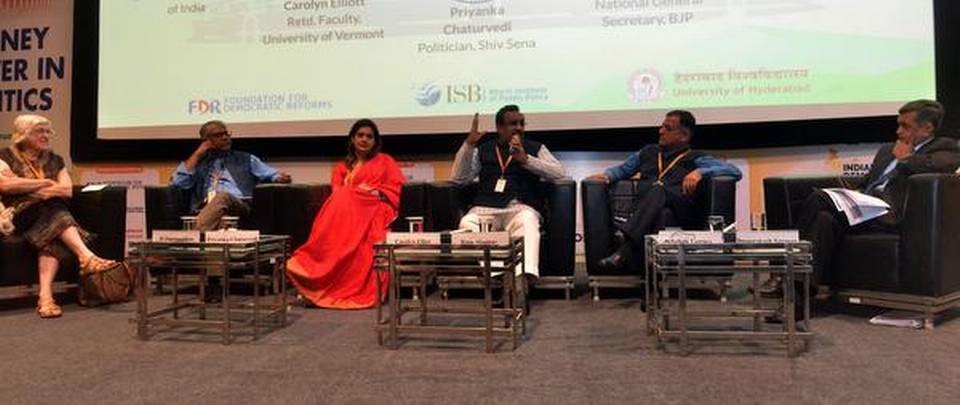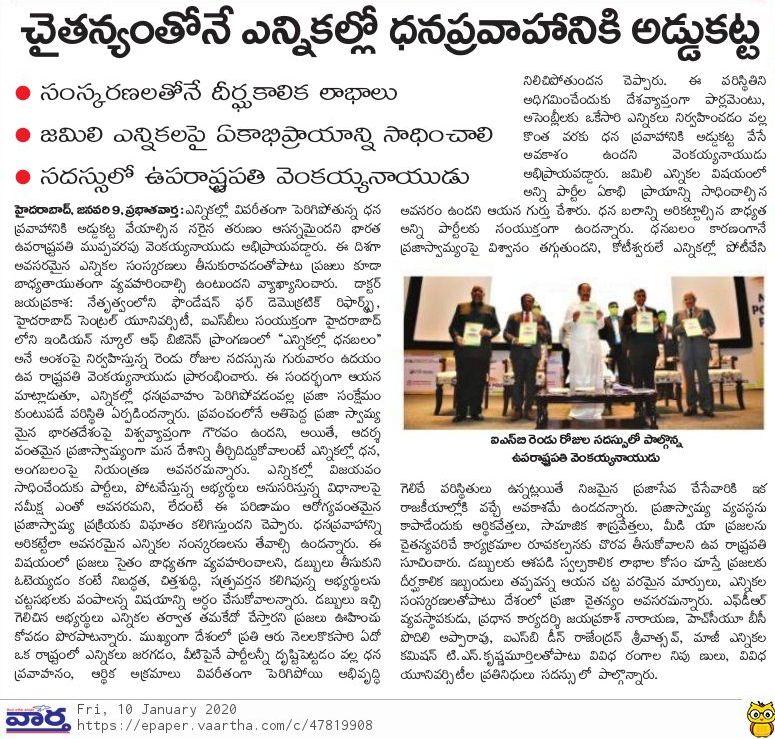‘Hyd declaration’ for curbs on money power in politics
After the two-day deliberations on ‘Money power in politics— Indian democracy at work’ at ISB, a ‘Hyderabad declaration’ was released enlisting steps to curb money power in politics. The conference organised by Foundation for Democratic Reforms (FDR) along with ISB and University of Hydrabad stressed on the need to disincentivise and deglamourise electoral office.
FDR president Jayaprakash Narayan said: “In recent decades, there has been an enormous increase of funds in political activity amounting to hundreds of crores of rupees. Realtors, land mafia, owners of educational institutions and big contractors make direct entry to gain access to the government. After the two-day deliberations, we came up with the Hyderabad declaration.”
According to the declaration, a concerted campaign should be taken up by civil society groups, Election Commission and citizens concerned on the consequences of money flooding into politics. The declaration also says that there is a need to strengthen and enforce legislations on political party funding and expenditure.
“There is no perfect electoral system. All electoral models have strengths and weaknesses. In the Indian context, elected legislators taking control of the fate of the government and becoming defector executives has led to competitive bidding for votes. Increasingly, a system of gift-giving to voters has developed. This has led to a vicious cycle of corruption, abuse of power and plutocracy,” said the declaration The conference said a national-level conversation on alternative electoral models is the need of the hour. Election commissioner Ashok Lavasa said that some pending suggestions made to strengthen the Election Commission would help address loopholes. He said at many meetings held by MHA, they did not discuss about electoral offences. He said state governments should investigate and prosecute the cases.
Courtesy: The Times of India



